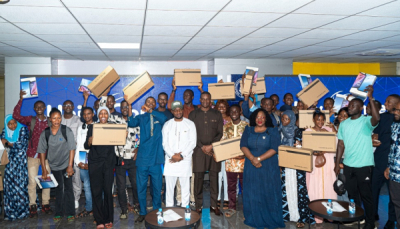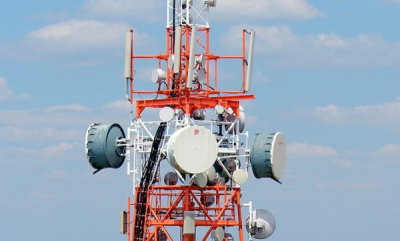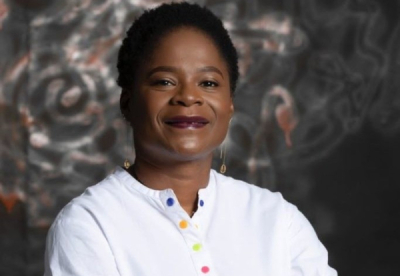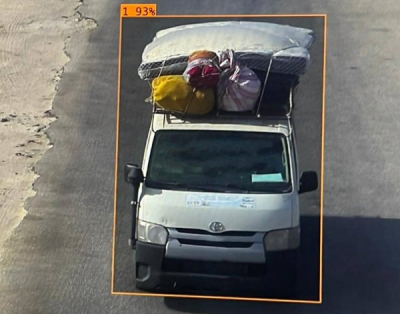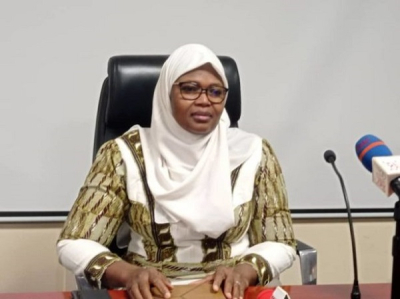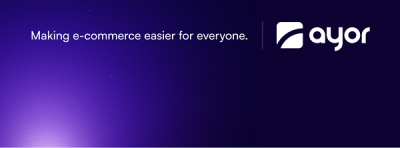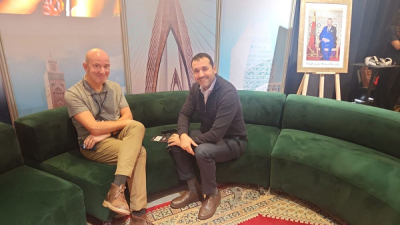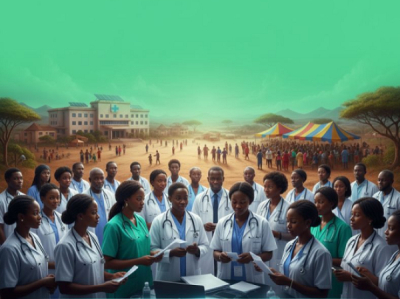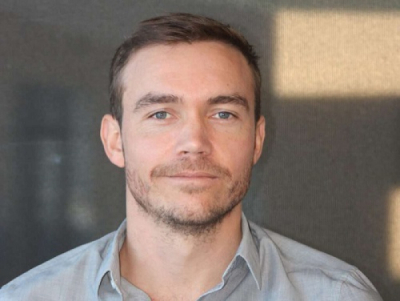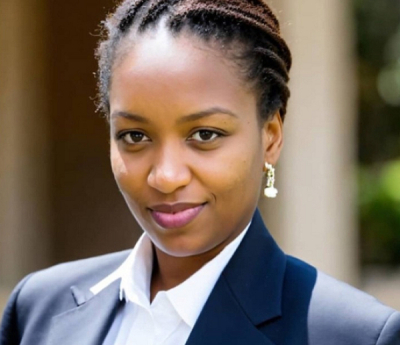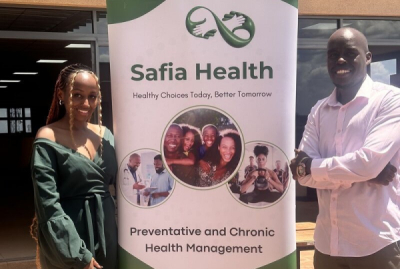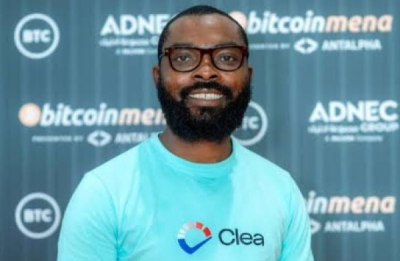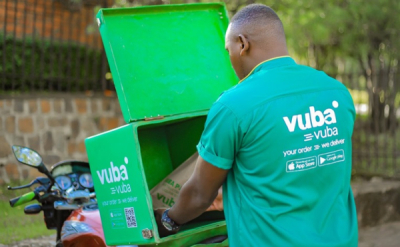The first edition of the digital summit GITEX Africa was held from May 31 to June 2 in Marrakech, Morocco. During the technology trade show, which brought together tech companies and start-ups, government delegations, global investors, international speakers, and tens of thousands of technology executives from more than 100 countries, We Are Tech Africa spoke with Freddy Mpinda, advisor to the Congolese minister in charge of the Digital Sector.
WAT: President Félix Tshisekedi expressed his ambition to leverage digital technologies to improve integration, good governance, economic growth, and social progress. What are the main projects underway to achieve this?
Freddy Mpinda: Indeed, the DRC has undergone a decisive digital turning point since the arrival of President Tshisekedi, who is advancing his vision to leverage digital technologies for integration, economic growth, and good governance. This vision is set out in the National Digital Plan (PNN) Horizon 2025 and implemented in a government program called the Digital Transformation Program (PTNRDC), implemented by the Ministry of Digital Affairs. The PTNRDC focuses on 8 priority projects (the digital code, e-Gouv (e-Citoyen, e-Cadastre), National Data Center, Government Intranet, Electronic Payment Aggregator, Tele-medical expertise, e-Education).
Currently, we have several projects underway. We have infrastructure projects because we're a big country and we want to connect as many Congolese as possible. We've expressed the need for 50,000 km of fiber optics because recent studies have shown that over 40 million of the country's 100 million people are not connected to anything. After all, mobile operators are set up in economically profitable regions, and rural areas are sometimes left out. So, we need fiber optics to connect as many Congolese as possible. Apart from this, we have e-governance projects, projects to teach digital skills to the youth and to support entrepreneurs, build data centers, deploy the national bar-coding platform that generates codes with the national prefix (605), and so on… So, projects are ongoing and we are trying to implement them with several partners.
WAT: As you mentioned earlier, DRC has a 2025 digital plan. Can you tell us the goals of that plan and what the government hopes to achieve by that timeline?
FM: Well, the plan has a deadline, which is 2025, because we’ve learned from other African countries and we wanted a time-bound plan. If you go through it, you will notice that it mentions that in 2025, it will be reviewed, amended, and relaunched. We're well aware that the projects we're working on, particularly infrastructure, can’t necessarily be completed by 2025. Nevertheless, we decided to launch as many projects as possible and take stock in 2025. So 2025 will be an evaluation phase. We'll see what has worked, and then we'll roll out a new plan. The Ministry of Digital Affairs has already achieved a great deal in a very short period, notably the adoption of the Digital Code, digital norms and standards in the DRC, the Startup Act (a law dedicated to start-ups, with a wealth of incentives and opportunities, editor's note), and the recruitment of career civil servants to the General Secretariat for Digital Affairs.
WAT: Over the past two years, your country has signed several partnerships with Estonia and China. What has the DRC gained from these partners, and what has it given in return?
FM: Well, that's easy to say. What did the DRC give in return? The DRC has given everything in return and provided the main inputs for the digital revolution. We hold almost 60% of the world's raw cobalt, Coltan, which is used in cell phones, and Niobium... We have all these metals. The real question is what the DRC is going to get in return because we've been contributing our minerals to this fourth revolution for many years now. And that's why our policy is to be open. We discuss as much with the Chinese, the Estonians, the Emiratis, and also with our African partners like the South Africans, the Zambians, and so on. What we need is to transform locally some of our raw materials, which today are just potential wealth-generating sources but are not yet generating real wealth. We have joint projects with African countries and countries around the world, but projects that must be profitable for the DRC, because, over the past 60 years, we've been giving away our raw materials and receiving very little. As far as digital transformation is concerned, feedback is vital for us and our partners. There's no need to reinvent the digital sector.
WAT: What does the DRC stand to gain from digital development?
FM: Digital technologies should be seen as a tool. The proof is that [the Ministry of Digital Affairs] is a transversal ministry, in other words, one that serves everyone. Today, at the GITEX Africa panel, I pointed out that the priority is to solve Africa's main problems. Digital technology is a powerful tool for solving our problems. Our top priority, as the Covid-19 crisis has shown, is to produce our food as close as possible to consumers. So for us, agriculture is a priority. The second priority is education. In March and April 2020, we found ourselves with 18 million Congolese schoolchildren forced to stay at home, with no possibility of learning remotely. So for us, digital technology must enable distance learning. The same goes for healthcare. We found ourselves with a pandemic overnight, and we had to find respirators, masks, and so on. Digital technology must help us improve our health strategy, particularly our vaccination strategy. We need to know who's been vaccinated and who hasn't. We're a fortunate country. Fortunately, we are a country that has already experienced a pandemic before, Ebola. Digital technology must be at the service of health and epidemiological surveillance. Agriculture, education, and health are our priorities.
WAT: In short, you mean that digital technologies are tools to enable DRC to achieve its sustainable development goals and more. But do you have the digital skills needed to keep up?
FM: when you read the plan, you will notice that it is based on four pillars namely infrastructure, content, applications, and governance and regulation. We do have a fifth pillar, which is education, but we decided that it couldn’t be a pillar by itself because for instance, to develop infrastructure, we need education. We need engineers, we need technicians, and so on. In terms of content, those who will develop applications, i.e. coders and so on, need education. In terms of application use, those who will be working to enable the State to become increasingly digital need education. Civil servants need to be brought up to speed. Governance regulation needs education. So education is everywhere. In reality, our plan is based on four apparent pillars and one invisible pillar, which is education. The Minister for the Digital Economy has made the development of digital skills a major focus of his action. The development of Congolese digital skills is a recurring theme in the latest memorandum of understanding signed in China by the two digital ministers.
Interview by Adoni Conrad Quenum



